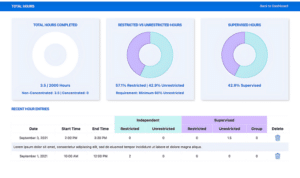
If you have a BCBA (Board Certified Behavior Analyst) certification, you may wonder about the career opportunities it can offer beyond working as a behavior analyst. One common question is whether a BCBA certification can lead to a career as a professor or researcher. In this article, we will explore this topic and provide insights into the possibilities and requirements for pursuing a career in academia or research with a BCBA certification.
Can a BCBA Certification Lead to a Career as a Professor or Researcher?
The good news is that having a BCBA certification can certainly open doors to a career as a professor or researcher. While the primary focus of a BCBA certification is applied behavior analysis (ABA), the knowledge and skills gained through this certification can be invaluable in various academic and research settings.
1. Becoming a Professor
As a BCBA-certified professional, you can pursue a career as a professor in universities or colleges. Teaching positions in special education, psychology, or applied behavior analysis departments often require expertise in ABA, making BCBA certification highly desirable. With your certification and expertise, you can instruct courses, mentor students, and contribute to the academic field through research and publications.
2. Pursuing Research Opportunities
A BCBA certification can also open doors to research opportunities in the field of applied behavior analysis. Many universities, research institutions, and private organizations conduct research in areas related to ABA. As a BCBA-certified professional, you can contribute to ongoing research projects, design and conduct your own studies, and publish research papers in academic journals.
Requirements for Becoming a Professor or Researcher
While a BCBA certification can provide a strong foundation, there are additional requirements to consider when aiming for a career as a professor or researcher.
1. Advanced Education
To become a professor, a higher level of education is typically required. Most universities prefer candidates with a doctoral degree (Ph.D. or Psy.D.) in a relevant field such as psychology, special education, or applied behavior analysis. Pursuing further education can enhance your qualifications and competitiveness in academia.
2. Research Experience
For research positions, having research experience is crucial. While BCBA certification demonstrates your expertise in applied behavior analysis, gaining research experience through participation in research projects, internships, or collaborations can strengthen your profile as a researcher.
3. Publications and Presentations
Publishing research papers in academic journals and presenting at conferences are essential for establishing credibility as a professor or researcher. Actively engaging in scholarly activities and disseminating your findings can significantly contribute to your professional growth and increase your visibility within the academic community.
In summary, a BCBA certification can indeed pave the way for a career as a professor or researcher. By leveraging your expertise in applied behavior analysis, pursuing higher education, gaining research experience, and actively participating in scholarly activities, you can increase your chances of success in academia and research. Remember to continuously seek opportunities for growth, collaboration, and professional development to achieve your career goals.


